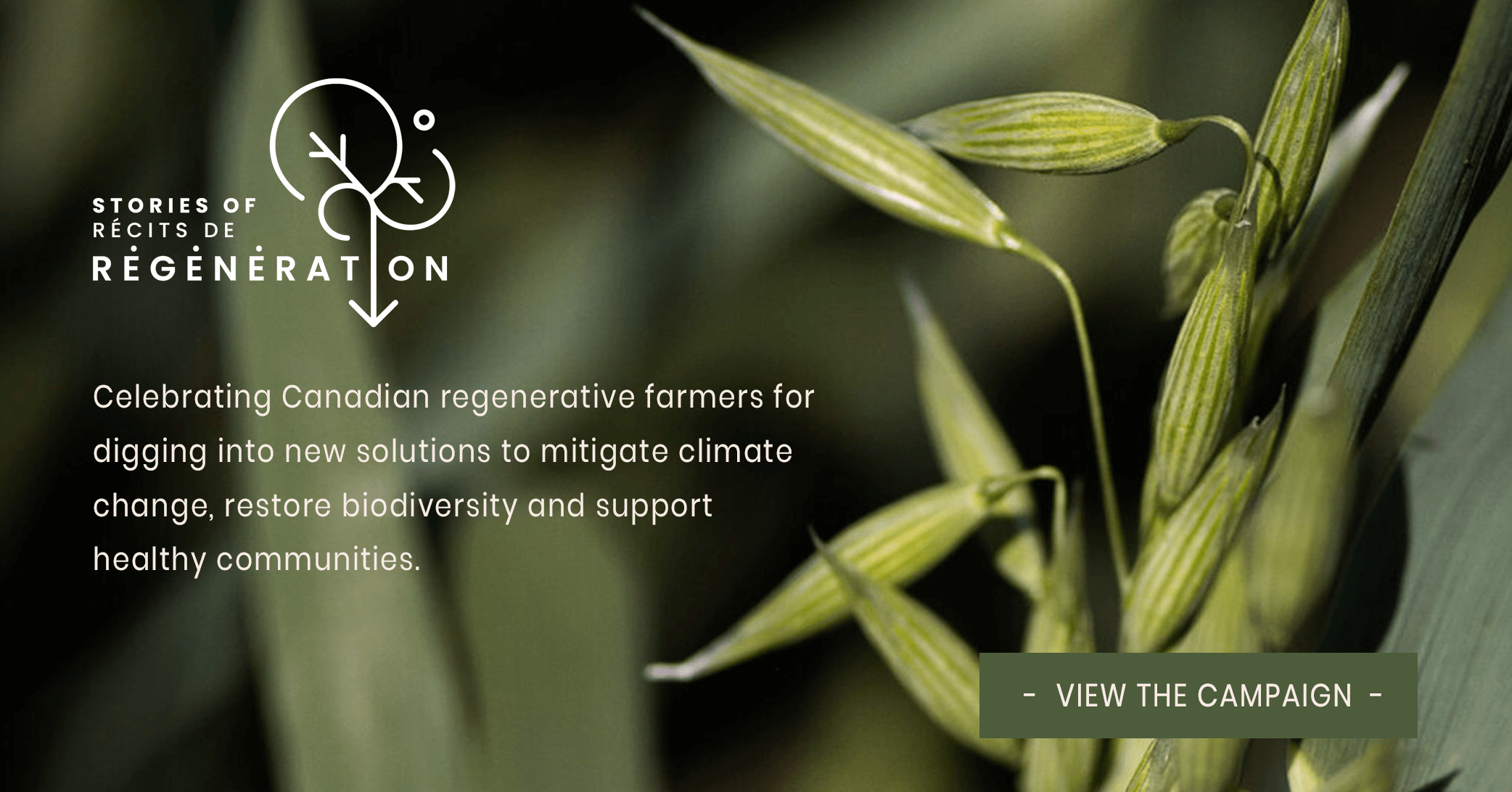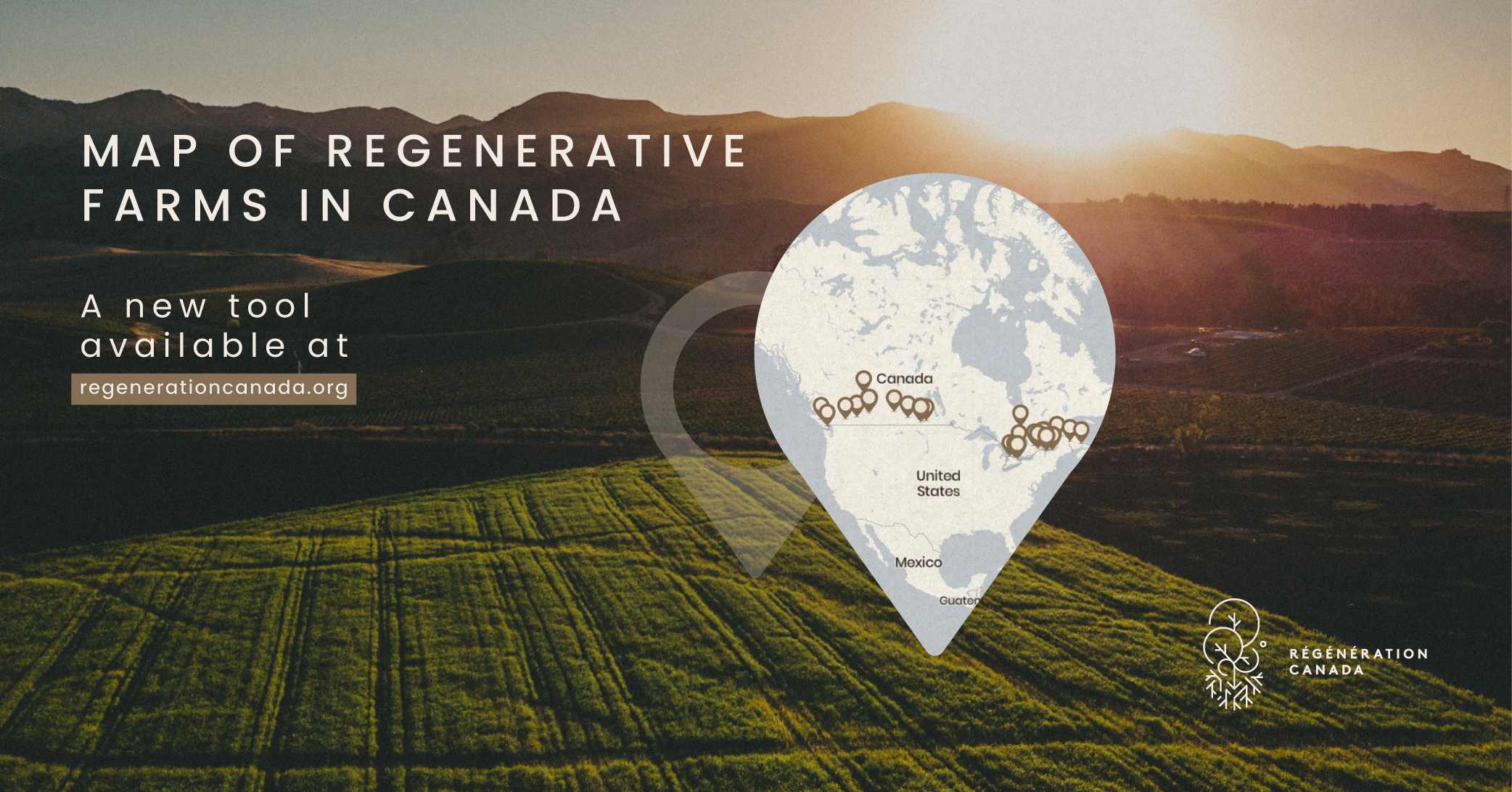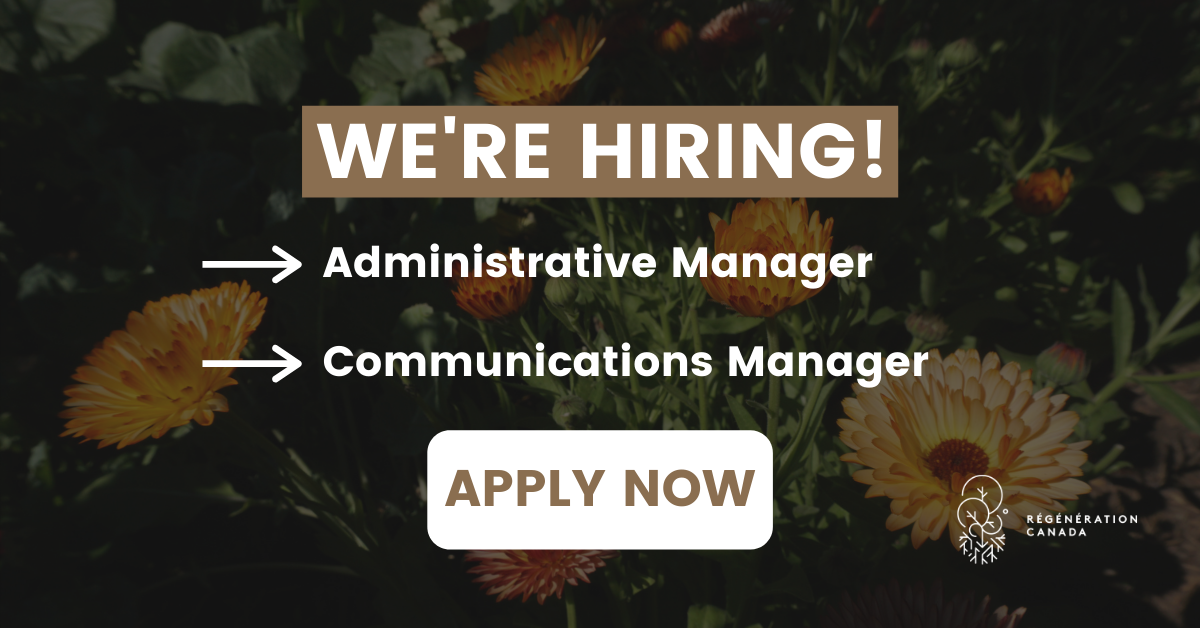Dedicated Dairy Farms: Regenerative Agriculture for the Climate Transition
For the greater overall health of Quebec dairy farms, including economic viability of farms, reduced greenhouse gas (GHG) emissions, a positive ecological footprint for the sector, and human and animal well-being at the heart of operations.
Description

This project aims to facilitate the adoption of regenerative practices by Quebec dairy farms in order to reduce the sector’s environmental footprint while increasing profitability and farm resilience to climate change. Dairy farms participating in this program will play a leadership role in the regenerative movement within their communities and the industry.
Objectives:
Support and accompany farmers in accessing the necessary resources (technical, financial, social) to facilitate the transition to regenerative agriculture.
Apply a comprehensive approach to quantify the environmental and economic impact of regenerative practices on dairy farms and optimize decision-making for implementation of new practices.
The Project Partners
Since 2021, General Mills, Logiag and Régénération Canada have been collaborating in the development and implementation of the Dedicated Dairy Farms.
Producers benefit from coaching that takes into account the realities and needs of the farm, technical support, as well as follow-up on the results from the implementation of new practices.
The project is founded on a spirit of collaboration, fostering the emergence of communities of practice in which active listening and knowledge-sharing between producers are central values.
A Sector-wide Mobilization Approach

Régénération Canada’s role within the Dedicated Dairy Farms project is to develop and disseminate educational content and training activities, and to promote networking among the producers involved.

The Régénération Canada team can count on the expertise of the following stakeholders in the strategic development of the program:
-
Steve Adam, agr., expert consultant in animal welfare
-
Aurélie Sierra, environmental sociologist
-
Pascal Viens, dairy farmer, Ferme Vimo (2010) inc.
-
Nathan Kaiser, dairy farmer and co-owner, Ferme Imperiale S.E.N.C
-
Kornel Schneider, dairy farmer, Ferme Rêveuse
-
Véronique Ouellet, Associate professor, Department of animal sciences, Laval University
-
François Labelle, agr., expert in organic dairy production, Lactanet
-
Brian Maloney, pastured beef and lamb producer, Brylee Farm
-
Frédérique Lavallée, agronomist and PhD student, Écoboeuf
-
Jean-François Messier, field crop producer
The context
Regenerative agriculture is based on land management principles that reverse the current trend of soil degradation, and subsequently air and water quality, by improving the soil ecosystem and restoring its biology. It applies contextually to different farming realities, ranging from a framework applicable to a whole sector, down to the unique specifications of each farm.
Dairy production in Quebec is a complex sector, central to the local food system and to the dynamic occupation of the territory. Dairy farmers in Quebec are innovating to move the sector towards practices that optimize economic and environmental benefits. Although Quebec’s dairy sector has one of the lowest GHG footprints per kg of milk in the world, the Dedicated Dairy Farms are committed to soil conservation, water quality and the health of farms’ natural ecosystems.
Achievements to date
-
Recruitment of 32 pilot farms in 6 administrative regions of Quebec;
-
Organization of information sessions and educational activities for the farmers;
-
Recruited industry experts to identify regenerative practices applicable to the dairy sector and to guide the strategic development of the project;
-
GHG quantification, soil carbon analysis and agronomic support for the farms as they implement their individualized climate transition plans;
-
Research and development of a comprehensive modelling approach to inform a protocol that will account for GHG reductions within the value chain;
-
Deployment of a training program for producers on topics such as cultivation practices, forage plants, herd nutrition and animal welfare;
-
Organization of professional co-development sessions to encourage exchange and knowledge sharing between producers;
-
Development of diverse partnerships within the sector in order to scale the Dedicated Dairy Farms in the context of the dairy industry’s climate transition.
Are you an agronomist, consultant, or industry actor interested in this program?
We want to talk to you!
Contact Antonious Petro, Director: antonious@regenerationcanada.org







